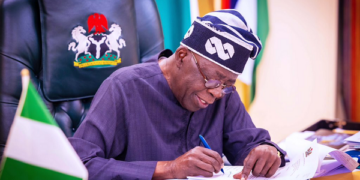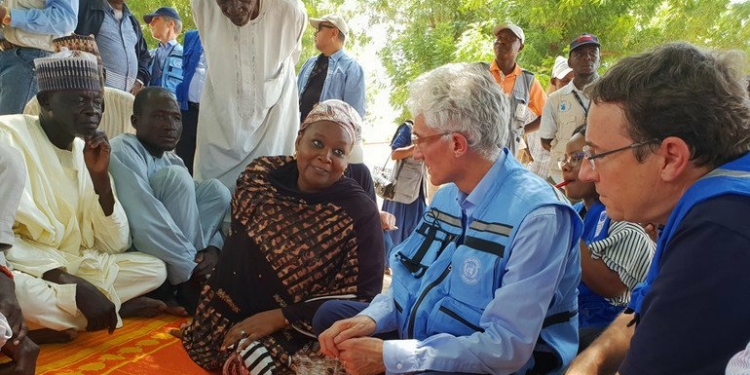Martin Griffiths, the United Nations Under-Secretary-General for Humanitarian Affairs and Emergency Relief Coordinator (USG/ERC), has concluded a four-day visit to Nigeria.
Griffiths saw first-hand, the humanitarian situation and response in the North-East, promising to raise international awareness about the crisis and bring attention to battles around Lake Chad.
The USG met with Vice President Yemi Osinbajo, federal government officials, Chief of Defence Staff, Leo Irabor, and Borno Governor, Babagana Zulum.
He also interacted with Nigerians affected by the violence, as well as humanitarian partners in Maiduguri, Bama and Damasak.
In Damasak, on the border with Niger, Griffiths heard from some women and families displaced by the violence. They told him of their hopes to return home.
The humanitarian chief expressed sadness about the deep impact of the violence and repeated displacement for many citizens.
Griffiths disclosed that people he met demonstrated amazing courage in the face of vicious violence, killings and kidnappings.
In Bama, women told the UN top officials, stories of how they escaped from years of armed group captivity only weeks ago.
He, however, confirmed getting Zulum’s commitment to the authorities’ zeal to improve security and build resilience for the most vulnerable.
“It is clear we share a common objective: upholding the dignity of Nigerians and finding ways to ease the suffering too many of them face today.
“People are yearning for security, livelihoods and better access to social services, and we stand ready to make this a reality with the Government and our humanitarian partners.”
Griffiths hailed aid workers in Bama and Damasak after listening to the challenges they face in reaching those in need.
“Brave humanitarian workers, most of them Nigerians themselves, work tirelessly and often at great personal risk to help others.”
The coordinator promised to continuously advocate their safety and for the necessary support to the persons they serve.
The humanitarian community reached more than 5 million people in Nigeria last year. The 2022 Nigeria Humanitarian Response Plan, for launch in February, requires over $1 billion to help 8.4 million people.
The UN added that the Lake Chad basin conflict has taken a heavy toll on communities across Nigeria, Cameroon, Chad and Niger, putting 10 million people at risk and in need of assistance.










Discussion about this post